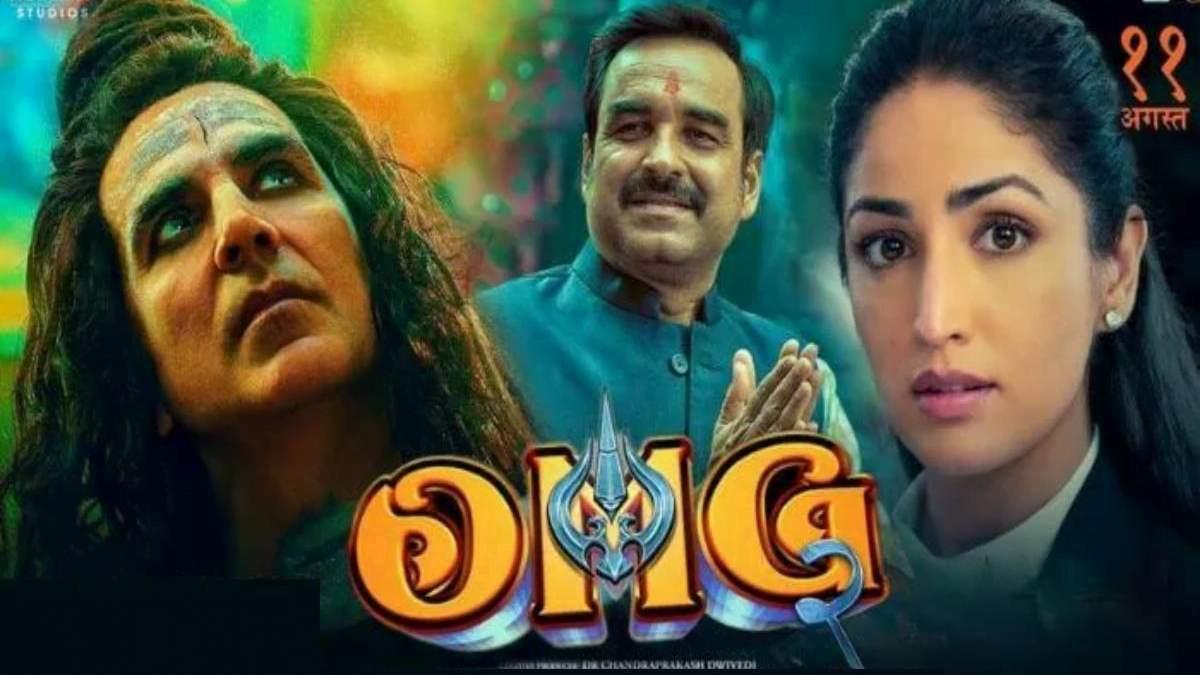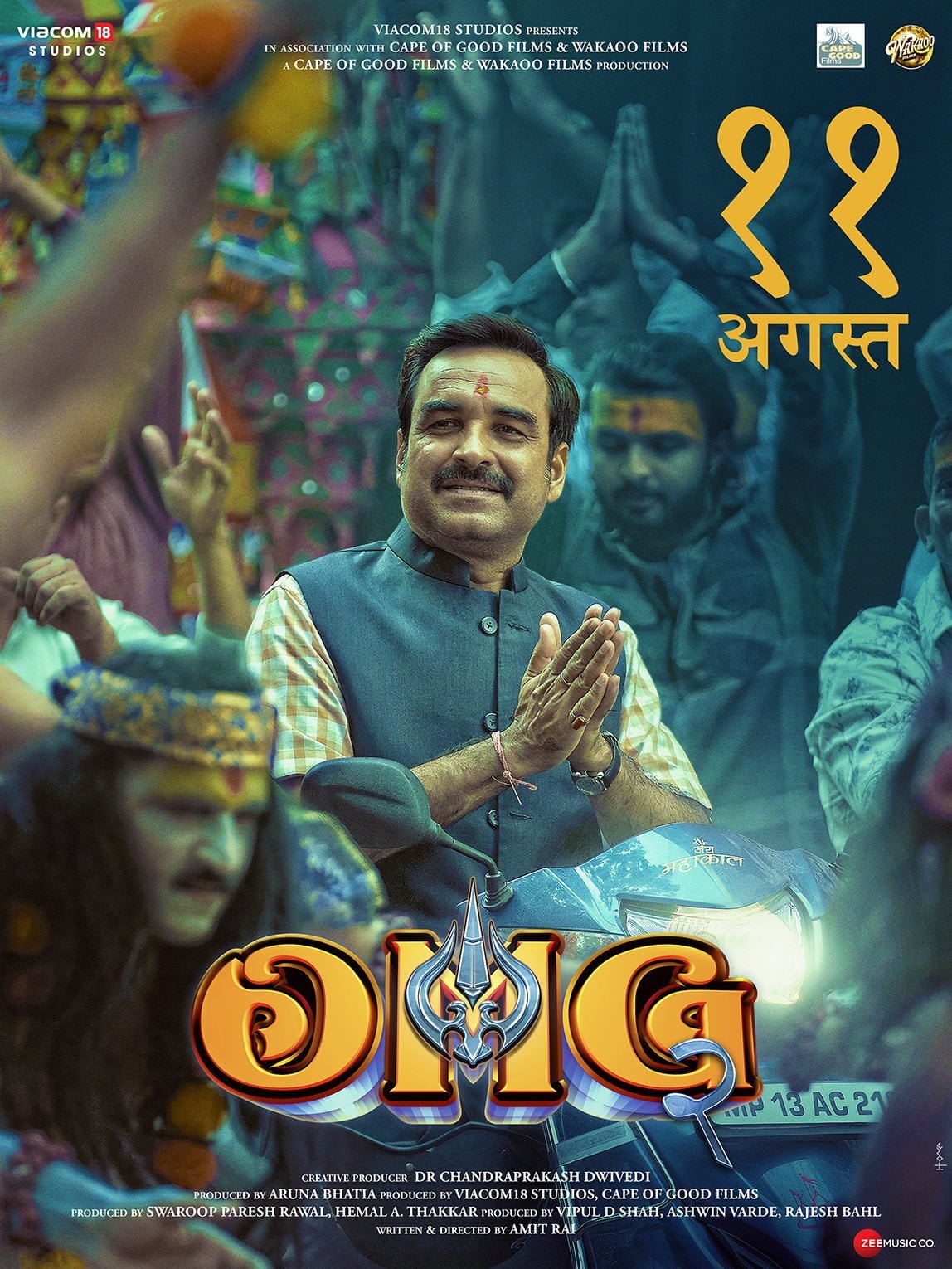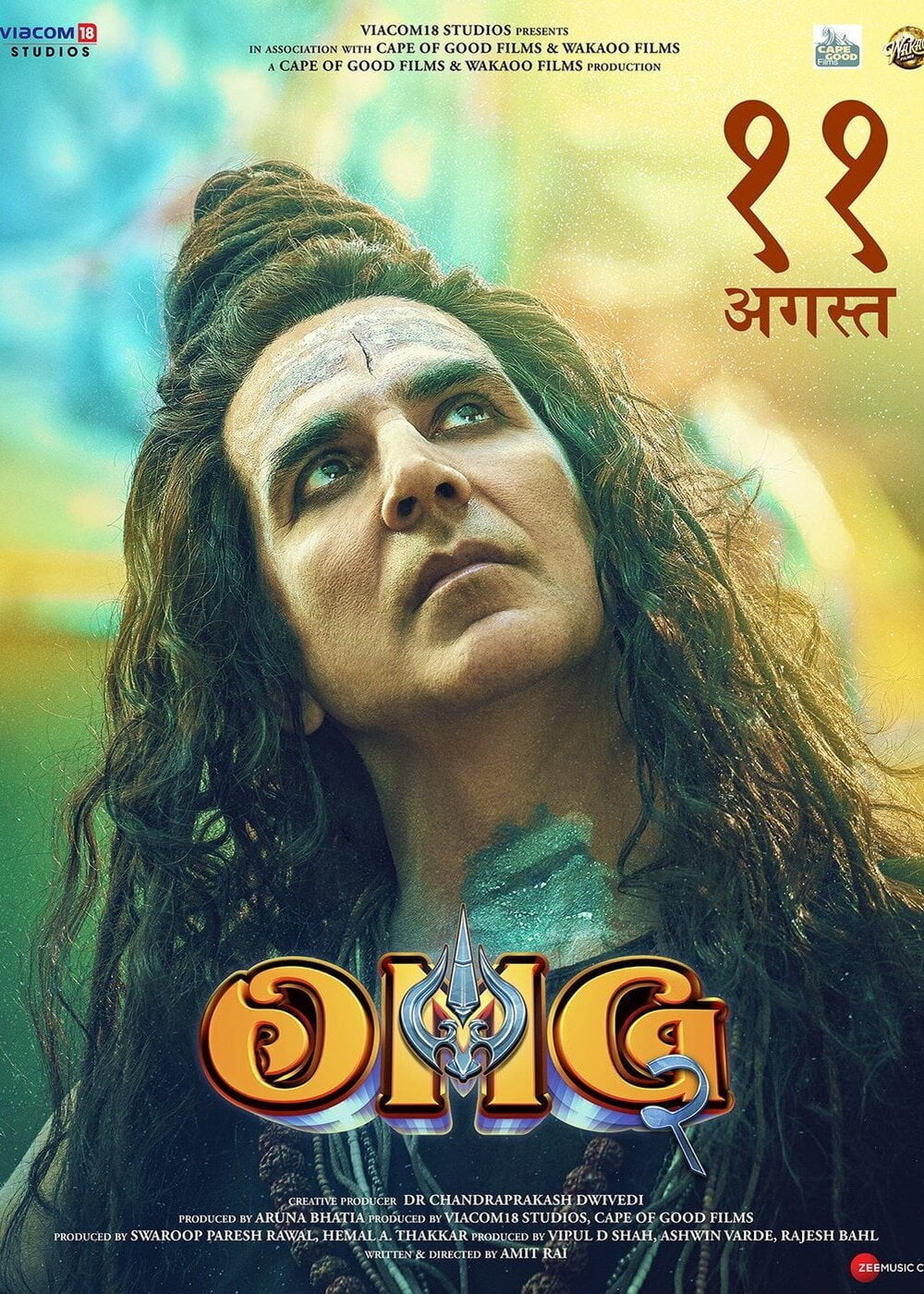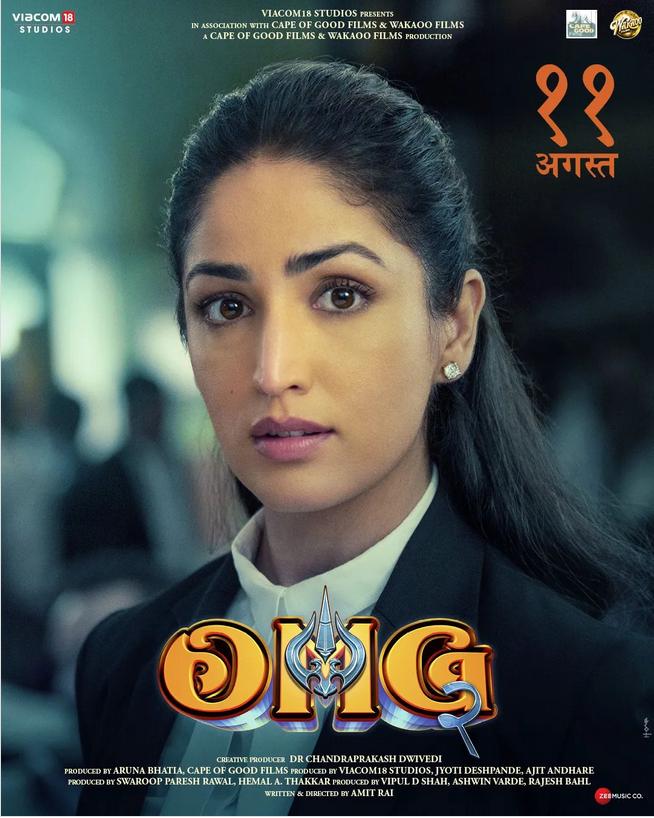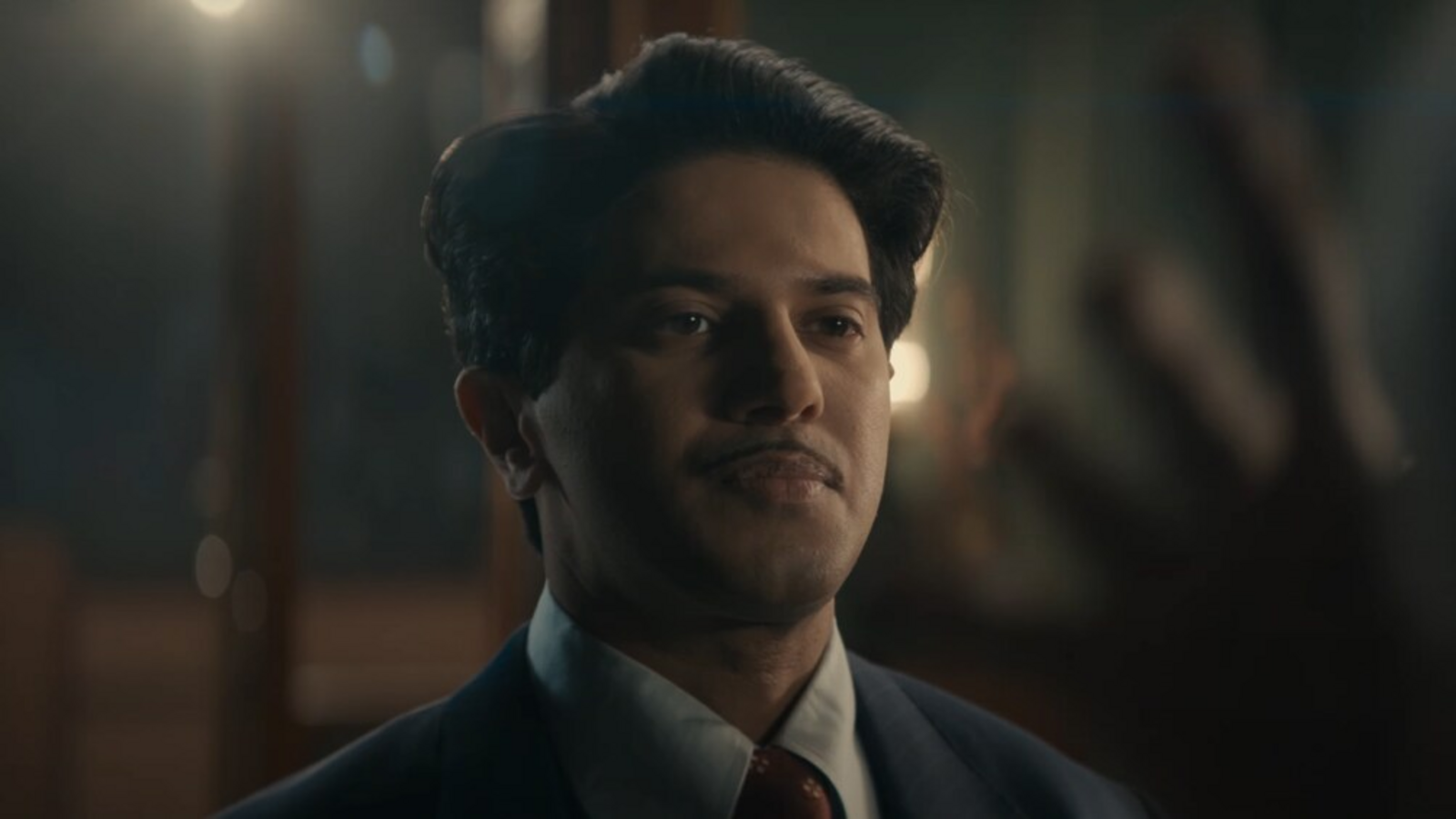Amit Rai`s OMG 2 (2023), the sequel to Umesh Shukla`s OMG – Oh My God (2012) is a humorous drama commenting on sex education in India. With such a “taboo” issue being the centre of the film, it, unfortunately, does not do much justice to it and is a failed attempt at educating people about it. It does a lot many things under the pretext of it being a comedy yet trying to raise serious awareness. This is precisely where the problem with OMG 2 begins.
Kanti Mudgal (Pankaj Tripathi) is a devout follower of Lord Shiva who owns a shop outside the Mahakal Temple. One day, he is called to the hospital where he gets to know that his son, Vivek (Aarush Verma) was up all night masturbating and consumed Viagra tablets to increase his penis size when his friends mocked him in school and asked him to masturbate if he wants to increase the size of his penis. The school chairman (Arun Govil) tells Kanti that Vivek was masturbating in the school washroom and his video is being circulated all around, within the school and outside it. He is expelled from the school on grounds of spreading obscenity and vulgarity through this act. Hearing this, Kanti is advised by his friend to leave the town so that his religious image is not tarnished.
Devastated Kanti starts praying to Lord Shiva and a messenger (Akshay Kumar) comes down to help him. Kanti also tries to die suicide out of embarrassment but is saved by the messenger who shows him a breastfeeding mother nearby and says that there is everything natural and nothing vulgar about it and the same is true of masturbation. The messenger asks Kanti to file a complaint in court and Kanti does so. He fights his own case where the school`s lawyer Kamini Maheshwari (Yami Gautam) comes in and stands by the school`s decision.
The scenes within the court add to the comic relief in OMG 2 while basing the arguments on certain facts from both ends.
Kanti tries to justify that his son performed the act out of lack of education and the school is to be blamed for it. He also talks about how the Sanatana Dharma is inclusive of conversations around sex. He also brings intimate pictures from the Ajanta and Ellora caves and supports his argument with a few readings and books. What follows is a series of debates between the two lawyers, giving their opinions on the state of sex education on one hand and also trying to dismantle each other`s argument on the other. The scenes within the court add to the comic relief in OMG 2 while basing the arguments on certain facts from both ends. Towards the end, a group of students gather in support of Vivek admitting that they too masturbate. The court pronounces Kanti`s case to be right following which Vivek is admitted back into the school.
While the message of OMG 2 is strong, the same cannot be said about its execution. There are certain problems in the film that cannot be ignored. Choosing religion and intertwining it with sex is a deliberate and calculated step. The linking of an act like sex with religion grants it legitimacy which further conveys that it is not a sin. Even while doing this, there runs a strong undercurrent of Hinduism throughout the film which is conveyed in the most obvious manner and no other belief system is given any space and representation. So much so that at one point, OMG 2 becomes more about Kanti`s beliefs and devotion than the bigger social issue it was supposed to address in the first place. He is guided by whatever the messenger says and it also opens a window to a wider problem prevailing within the film, i.e., the public tarnishing of Vivek`s dignity.
Vivek masturbating in the washroom and the video circulating around is the trigger point in the film. This is carried too far, where Vivek`s dignity is something even his father is not taking care of, let alone anyone else. The school as an institution also fails at this point in the film, where such an issue should have been handled with care but instead, the school is too busy to prove what it did is right and completely ignores what their student is going through.
People on the two sides of the court do not care about the mental health of the young Vivek and no wonder, see him trying to hurt himself, sobbing and crying at regular intervals in the OMG 2.
People on the two sides of the court do not care about the mental health of the young Vivek and no wonder, see him trying to hurt himself, sobbing and crying at regular intervals in the OMG 2. However, there is no one to save him from the misery. This itself comments on the large space the film gives to the binaries of right and wrong, and how it completely overlooks what young and naive kids like Vivek might be going through under such crucial and sensitive circumstances.
There is also a scene in OMG 2 where Kanti calls a sex worker whose son studies in the same school as that of Vivek to the court and interrogates what she goes through on a daily basis and whether such sex gives her pleasure. She replies that men who visit her do not know anything about a woman’s body. Thus, Kanti tries to justify the point that the schools aren’t doing enough and they should teach this to their students, especially sons in this case. Looking at this from a feminist lens, while we see the sex worker who is clearly not comfortable answering whatever Kanti wants to know, covering her face in the court, there is also strong objectification of the sex worker as a woman that takes place in this particular scene.
The sex worker is portrayed as the `other` and clearly there is a kind of tokenism that comes into play. She bears the burden of representation of her profession and though she is given a space in the film, the space is very minimal and quite privileged in its approach. In the same space, we also see Kanti`s wife standing and answering Kamini`s question of what sex on her first marriage night felt like. She shies away from answering and in this moment, Kanti is shown to be the uncomfortable one and wants his wife to step down. This presents a grim reality where Kanti is uncomfortable with the public discussion of his first night of the wedding but expects a female sex worker to describe her experience openly, irrespective of how it was.
In several instances in OMG 2, Kamini makes more sense than Kanti. Every time she speaks for Vivek or even the dignity of the sex worker, she is concerned with what both of them might be going through.
In several instances in OMG 2, Kamini makes more sense than Kanti. Every time she speaks for Vivek or even the dignity of the sex worker, she is concerned with what both of them might be going through. Kanti makes fun of her and this is also where the traces of mansplaining come in the film. Kanti makes less valid points himself and instead, tries to explain things to Kamini throughout, all in the presence of the judge who does not object to any step taken by Kanti to prove his points. While one is not saying that Kamini`s stand is right, what one is saying is that it is not at all illogical either, she makes a lot of sense in the film as opposed to the belief that she is the main culprit in the film. At a secondary level, Kanti has an important point to make, but his ways are not appropriate and take into account a very small group of people.
Kamini is the only woman fighting in the cause, and thus to have a female character and then present her as the bad person in OMG 2 becomes easy. There is also a scene when Kanti`s daughter is brought into the court, and even when she is not comfortable, she is forced to answer why she feels her brother masturbated in the first place. She is also asked whether it is vulgar or not. Having said this, the film almost negates the female presence and oversteps whenever it is about how comfortable anyone is, not just women alone. It addresses a very important issue and all appreciation for it, but in the process of doing so, it adds a lot of elements that are highly problematic and the film could have done without them as well.
OMG 2 brings up important issues, highlights them and perhaps provides possible solutions as well. But it fails to differentiate between the public and the private, by not respecting the dignity of certain characters in the film. Instead, it shows how spirituality combined with masculinity is here to win, the majority of the time if not always. It is a film you would want to watch because of Pankaj Tripathi, but can the cast appeal allow us to overlook the multiple layered problems within the film?
About the author(s)
Zainab is a literature student at the University of Delhi. She loves stories, books, cinema and humans too, sometimes!
